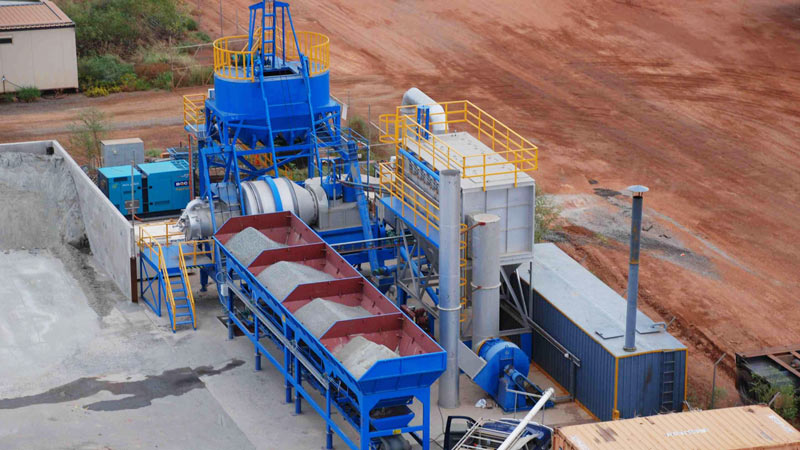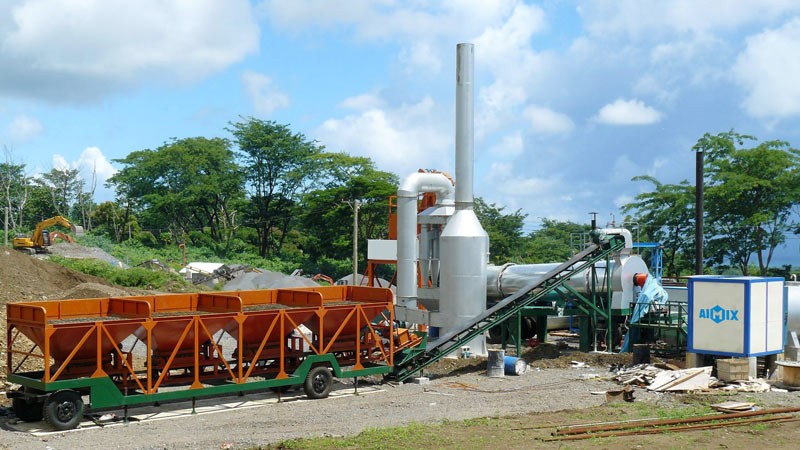As infrastructure projects become more geographically diverse and time-sensitive, contractors are increasingly turning to mobile asphalt plants for flexibility and cost efficiency. One of the major advantages of a mobile asphalt plant is its ability to minimize transportation-related expenses. This article explores the specific transportation costs that can be saved when using mobile asphalt plants, and how they compare to traditional batch mix asphalt plant setups.
Understanding the Mobility Advantage
Traditional stationary asphalt plants are often fixed in location and require transporting asphalt mix from the plant to various construction sites. This model is efficient only when job sites are close by or centralized. However, as projects become more dispersed—such as in rural roadwork, municipal maintenance, or emergency repairs—the cost of transporting asphalt mix can escalate rapidly.
Mobile asphalt plants(Planta de asfalto movil), by contrast, are designed to be easily moved and installed near the project location. They often come pre-assembled on trailers or skid-mounted modules, allowing them to be relocated without dismantling the entire system. This mobility provides direct savings in several key areas of transportation.
1. Reduced Hauling of Finished Asphalt Mix
Transporting hot asphalt from a central plant to remote job sites not only consumes fuel but also risks compromising the mix quality due to temperature loss. Longer distances may require heated trucks or additives to preserve workability, both of which increase costs.
By placing a mobile asphalt plant near the construction site, contractors can eliminate or significantly reduce these hauling requirements. The mix is produced on-site, ensuring fresher, more consistent quality and minimizing reliance on costly truck fleets.
2. Lower Fuel Consumption
Every kilometer that a loaded asphalt truck travels adds to the overall fuel expenditure of a project. Considering that a typical asphalt mix delivery truck gets less than 6 miles per gallon under load, frequent long-distance hauling leads to substantial fuel costs.
Mobile asphalt plants help reduce fuel consumption by limiting the number of trips needed between the plant and the job site. Instead of dozens of round-trips from a fixed asphalt plant(planta de asfalto), the materials (aggregates, bitumen) can be delivered to the site in bulk less frequently.
3. Fewer Trucks Required
Batch mix asphalt plant operations often require a dedicated fleet of trucks to maintain timely delivery, especially for high-volume paving jobs. Coordinating these deliveries adds logistical complexity and increases the risk of downtime or mix waste.
In contrast, mobile asphalt plants allow for just-in-time production, which means fewer trucks are required overall. Contractors can downsize their transportation fleet, reducing expenses on vehicle maintenance, insurance, and labor.

Cost Implications of Setup and Relocation
While traditional asphalt plants can be costly and time-consuming to install, mobile asphalt plants are built for speed and ease of setup. This convenience also translates into transportation-related savings.
Quick Installation and Minimal Site Prep
Most mobile asphalt plants are designed to be operational within days of arrival. Unlike permanent installations that may need concrete foundations, cranes, and extensive groundwork, mobile units often require only flat, compacted surfaces.
This reduces the need to transport heavy construction equipment for plant setup, saving on fuel, equipment rental, and labor costs. In situations where multiple job sites are tackled in sequence, the ability to relocate the plant quickly is a major financial advantage.
Eliminating the Need for Satellite Plants
For companies managing projects across wide regions, one common approach is to invest in multiple stationary plants(planta de asfalto estacionaria) to serve various zones. However, this strategy involves significant capital and logistical complexity.
A more efficient solution is to use a mobile asphalt plant that can serve multiple locations over time. This eliminates the cost of constructing and maintaining several fixed plants, consolidating production and reducing total investment in infrastructure and transportation.
Impact on Material Transportation
Although mobile asphalt plants reduce finished asphalt transport, materials like aggregates and bitumen still need to be delivered. However, transporting raw materials offers more flexibility in scheduling and cost-saving opportunities.
Bulk Delivery Benefits
Aggregates and bitumen can be transported in bulk via rail or long-haul trucks, which are more cost-efficient than delivering finished asphalt in small batches. These materials are not as temperature-sensitive as hot mix, allowing for flexible and consolidated logistics planning.
Once delivered, the mobile plant can process them on-site with minimal delay, maximizing efficiency and minimizing waste.

Choosing the Right Mobile Asphalt Plant
Asphalt contractors looking to reduce transport costs should evaluate various models of mobile asphalt plants based on:
- Output capacity: Choose a model that matches your project volume.
- Fuel efficiency: Look for energy-efficient burners and systems.
- Mobility features: Trailer-mounted or modular designs are easier to transport.
- Mix flexibility: Ensure compatibility with your preferred asphalt recipes, especially if using modified mixes.
Buyers can explore a wide range of options by searching for an asphalt plant for sale(planta de asfalto en venta) from reputable manufacturers offering localized support and training.
Conclusion
Mobile asphalt plants offer a clear advantage in transportation cost savings by reducing the need for asphalt hauling, lowering fuel consumption, requiring fewer delivery trucks, and minimizing site setup requirements. When strategically deployed, a mobile asphalt plant becomes a cost-effective and flexible solution for road construction projects in diverse and remote locations.
As demand grows for more agile, responsive infrastructure development, mobile plants are becoming a go-to alternative to traditional batch mix asphalt plant systems—delivering not just mobility, but measurable savings on every mile.